One of the most pervasive criticisms that contemporary critics leveled at the earliest films of director Quentin Tarantino was one of “nihilism” — the belief that his films embodied a cynical view of an amoral universe that was unraveling at the seams with nobody who could stop it.
These criticisms began with contemporary reviews of Reservoir Dogs, Tarantino’s directorial debut. At The Washington Post, Desson Howe described the film as a “nihilistic drama.” At Variety, Todd McCarthy went further, arguing it was “nihilistic but not resonantly so.” Stephen Hunter in The Baltimore Sun described it as “one of those pulpy endorsements of nihilism that ends up with just about everybody in the movie and several poor souls in the first rows of the theater on slabs.”
These accusations haunted Tarantino through the decade. In 1998, Los Angeles Times film critic Kenneth Turan reported a colleague lamenting how “the gleeful and nihilistic mixture of bloody violence and comedy” associated with Tarantino had infected cinema. Although Manohla Dargis was careful to avoid directly implicating Tarantino in what she christened “the new nihilism” that same week, the fact she felt the need to mention him at all suggested his association with the movement.
Jonathan Rosenbaum complained that a “nihilistic pop masterpiece” like Pulp Fiction could win the Palme d’Or at the Cannes Film Festival ahead of Krzysztof Kieslowski’s Red. The decision of Clint Eastwood’s jury to award the prize to Tarantino remains controversial among a certain class of film critic. However, there is not as much difference between Kieslowski’s Red and Tarantino’s Pulp Fiction as Rosenbaum would claim. Both are meditations on a chaotic, detached world.
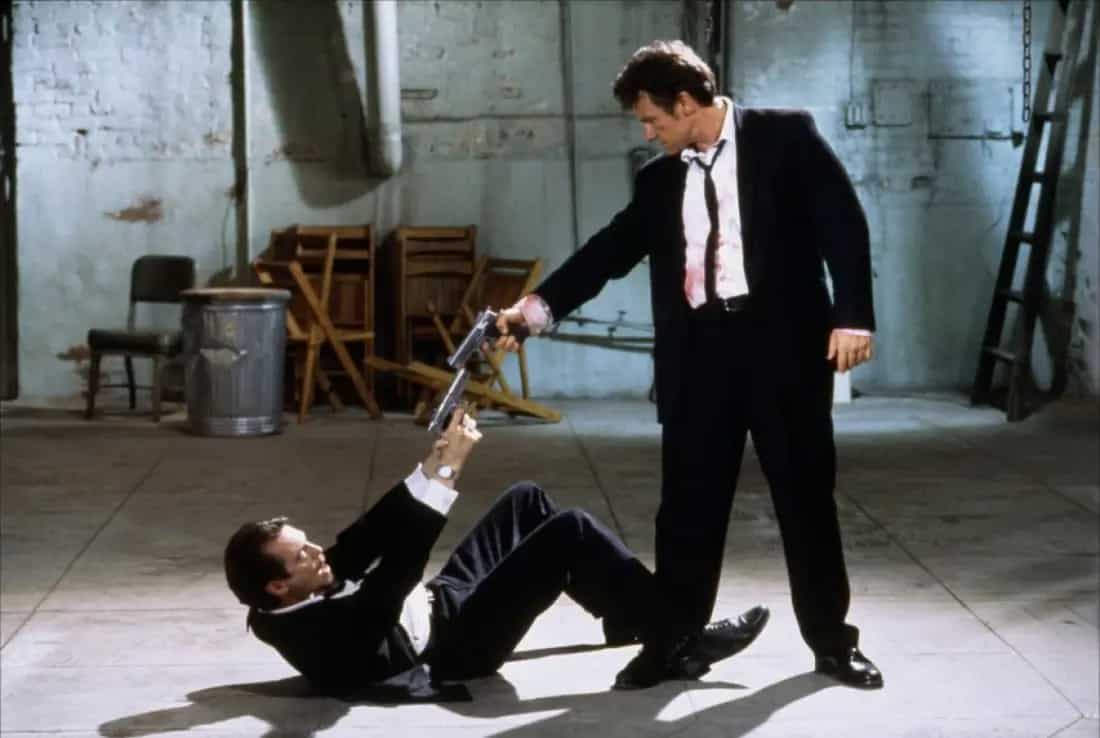
Tarantino himself describes Red as a “masterpiece.” It is a study of anomie and disconnect. It is a French film shot in Geneva that was “deemed too Polish” to be eligible for the Best Foreign Film Oscar. It focuses on a retired judge (Jean-Louis Trintignant) who listens in on the phone conversations of the people around him. The film suggests that the love of his life might have been the student and model Valentine Dussaut (Irène Jacob), but they were simply born too far apart.
Kieslowski has described how he was motivated as a filmmaker by observing life in the wake of the Cold War. “I was watching people who didn’t really know why they were living,” he explained. Red is part of Kieslowski’s Three Colours trilogy of films — so-called not out of any patriotic fervor, but because the money to make them came from France. At their core, these three films are about the unlikely and unpredictable intersections of lives that seem to be moving without direction or purpose.
These themes echo in Tarantino’s films. This is obvious in the sprawling ensembles and non-linear structure of films like Reservoir Dogs and Pulp Fiction. Indeed, his script for True Romance had been nonlinear before director Tony Scott restructured it to make it linear. While critics complained that Tarantino was just showing off with these complex structures, the writer and director rejected that assertion, “Those stories were better served dramatically to be done the way I did them.”
The disjointed and non-linear structure of Reservoir Dogs and Pulp Fiction in some ways reflected the cultural anxieties of the decade around them. By designing the films to separate and reverse the concepts of cause and effect — in many cases showing consequence before inciting event — Tarantino invited the audience to question the idea of causal relationships. Similar to the idea of the lovers displaced in time in Red, Pulp Fiction displaces action and reaction.
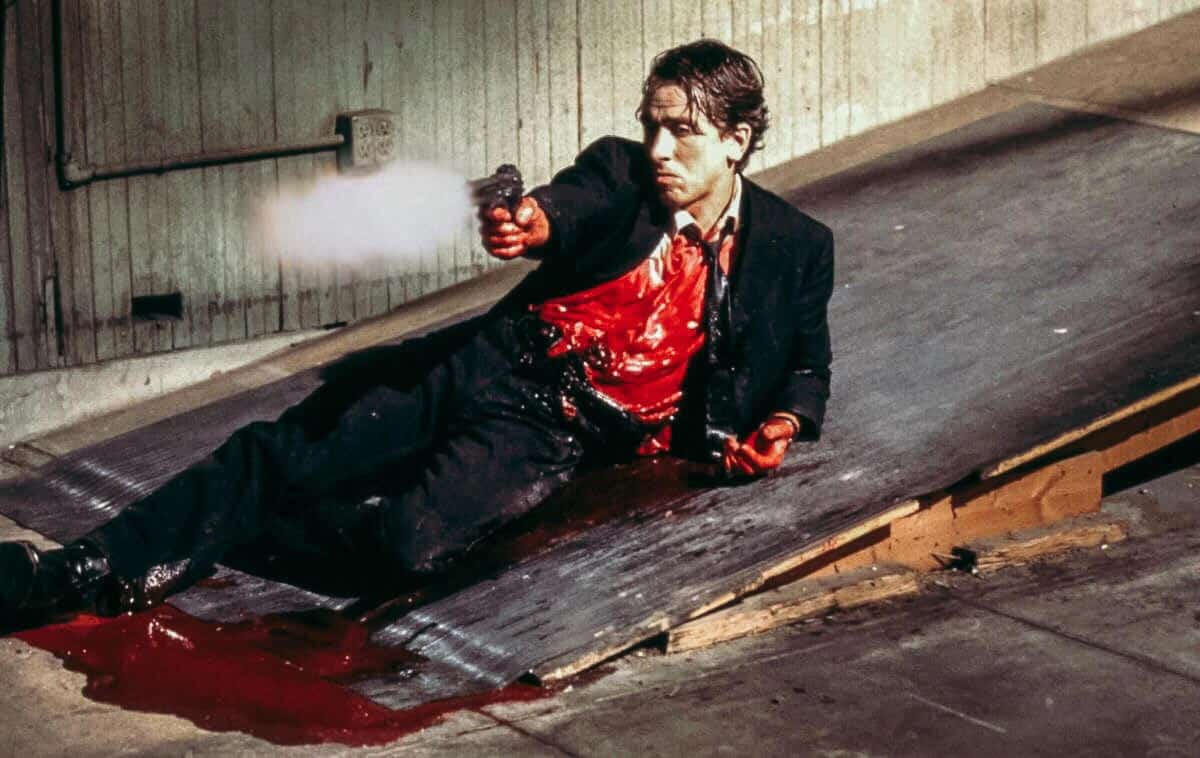
This could be seen as an extension of the idea of “the end of history,” proposed by economist Francis Fukuyama at the end of the Cold War. If there was no progress to make, of course cause and effect would unravel. More specifically, it reflected what French philosopher Jean Baudrillard would describe as “the illusion of the end” in 1992 — the same year that Reservoir Dogs was released. Aleksandar S. Santrac summed up Baudrillard’s theory as “a short circuit between cause and effect.”
This disentanglement of action and consequence gets at a larger fear. The same year that Reservoir Dogs was released, author Neal Gabler lamented the breakdown of moral consensus, “Without a consensus, we will have not just moral anomie; we will have a society so fragmented that it ceases to exist.” The same year that Pulp Fiction was released, author Tom Wolfe argued, “Now there’s hardly an educated person who would say right and wrong is written in stone.”
Indeed, just as Red lost the Palme d’Or to Pulp Fiction, Pulp Fiction lost the Best Picture Oscar to Forrest Gump. Forrest Gump was seen as part of a major conservative push in contemporary mainstream movies, an assertion of a comforting narrative about the arc of history that imposed a comforting external meaning and structure on a chaotic decade. It is “a warm reassurance.” This external meaning and reassurance is largely absent from both Reservoir Dogs and Pulp Fiction.
After all, Tarantino’s films are set against a chaotic “urban Wild West of contraband, drugs, bribery and professional destruction.” They focus on criminals and murderers. The robbers in Reservoir Dogs cannot even agree on the order in which events occur. In Pulp Fiction, the boxer Butch (Bruce Willis) goes from the organized crime fight-rigging of Robert Wise’s The Set-Up to the horrific sexual assault of John Boorman’s Deliverance in “the single weirdest day of [his] life.”
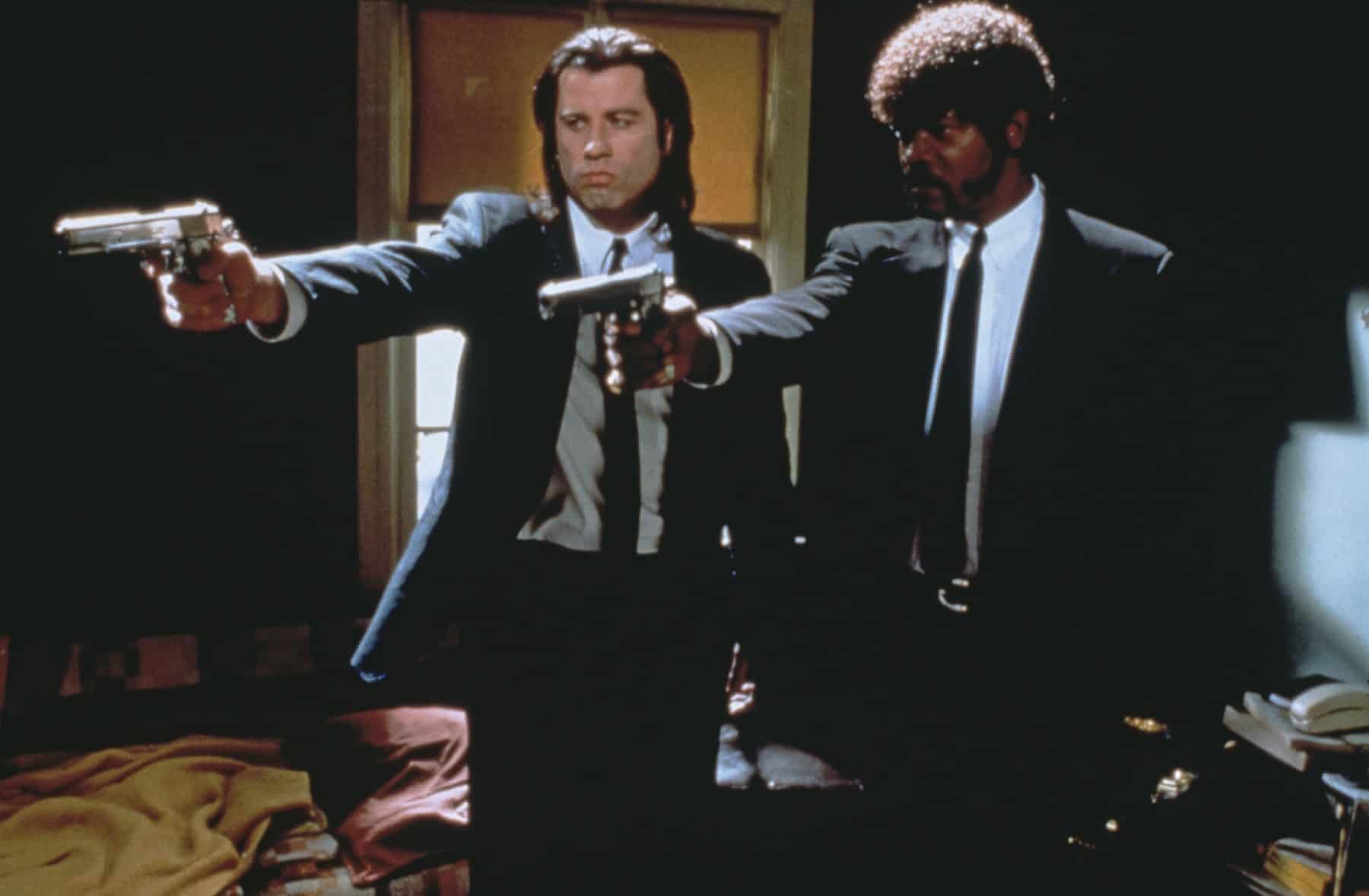
As such, on the surface, Tarantino would seem to be embracing this chaotic nihilism, acknowledging that the world operates without any driving principles or moral logic. The world is insane. However, a closer look at Reservoir Dogs and Pulp Fiction reveals something much more interesting. Instead of rejecting the idea of a moral order to the universe, Tarantino instead acknowledges that it is increasingly hard to find. However, it is there for characters and audiences willing to discern it.
This is reflected in the structure of both Reservoir Dogs and Pulp Fiction. For most of Reservoir Dogs, Mr. Orange (Tim Roth) is bleeding out on the floor of a warehouse, having been shot during the botched robbery. Over the course of the film, it is revealed that Mr. Orange is actually an undercover cop named Freddy. Initially, the idea that an undercover cop would die so slowly and painfully and certainly seems to reinforce the film’s nihilism. Shouldn’t Freddy be the good guy?
Gradually, the film offers flashbacks for the various characters. Freddy’s story is last. The particulars of Freddy’s wound are treated as a big deal; Freddy was shot by a woman that he attempted to carjack. He reflexively shot back, killing her. She was neither a cop nor a criminal; she was what Mr. Pink (Steve Buscemi) would call “real people.” It happens by train tracks, suggesting the crossing of a line. The camera lingers on Freddy’s face. This is Freddy’s big sin. Crucially, he knows it.
In Pulp Fiction, the audience is introduced to career criminals Vincent (John Travolta) and Jules (Samuel L. Jackson) in the first section of the film. In the movie’s middle section, Vincent is killed rather ignominiously by Butch while emerging from the bathroom. Jules is nowhere to be seen. Jules’ absence is only explained in the third story told, which actually happens before the events of the other two. Vincent and Jules were almost killed in an ambush, and Jules took it as a sign.
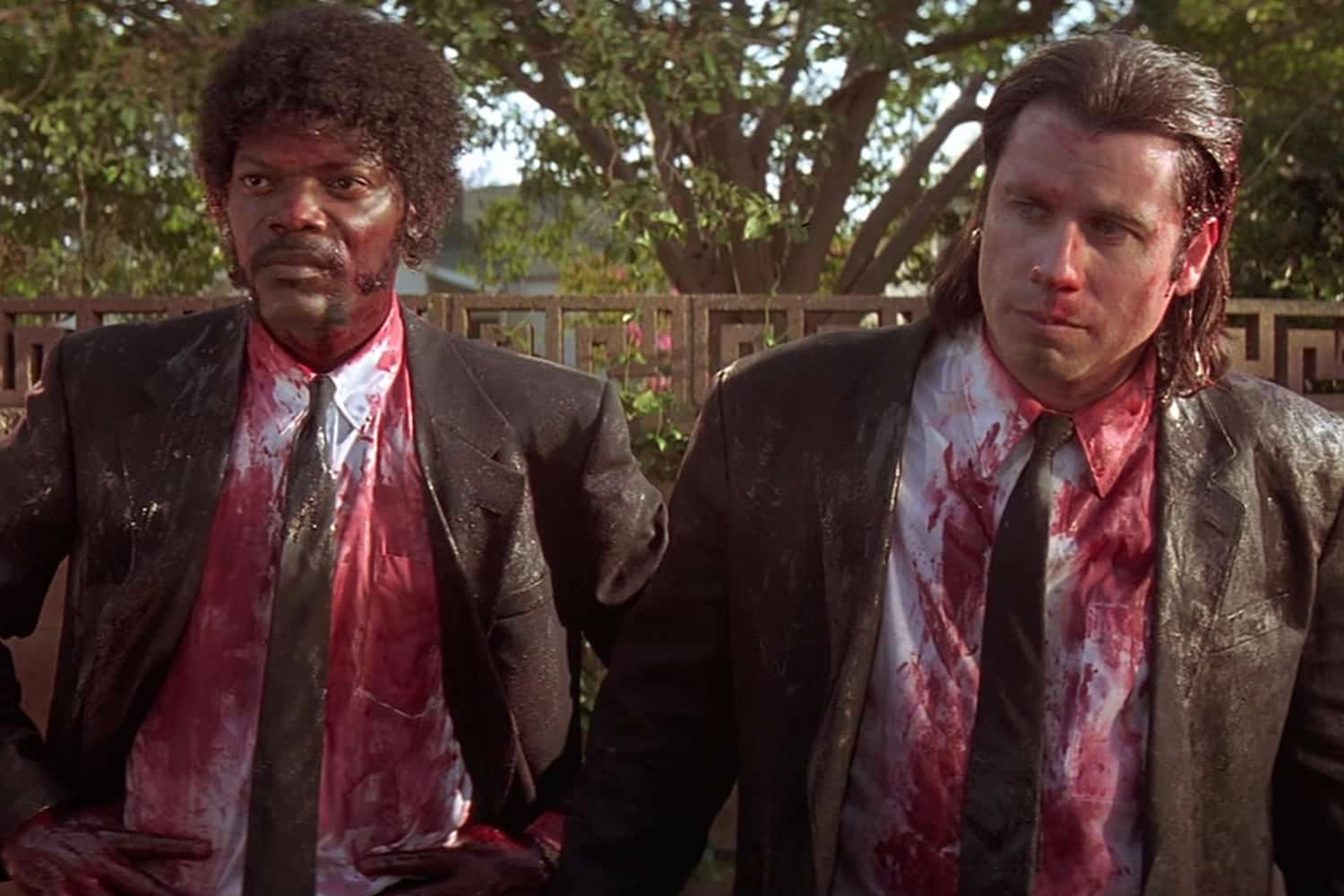
One of the big debates between Jules and Vincent is about whether the miraculous series of events that spared their lives was “divine intervention,” the action of a “higher power.” Vincent scoffs at the idea, treating it as luck. Jules treats it as a sign. He sets out to redeem himself. He does this by peacefully negotiating a stand-off with two armed robbers (Roth and Amanda Plumber) instead of killing them and by retiring from “the life.” This means he is not killed by Butch along with Vincent.
When the events of Reservoir Dogs and Pulp Fiction are laid out linearly, they are surprisingly straightforward morality tales: Freddy kills an innocent person and so dies with the criminals; Jules renounces his life of crime while Vincent refuses, so Jules lives and Vincent dies. “At the end of the movie,” Tarantino explained of Pulp Fiction, “the guy who actually becomes the lead character after the movie’s over with is a killer who has a religious epiphany! And it’s played straight. It’s not a big joke.”
Tarantino being Tarantino, he frames this morality in terms of Hollywood history. “I never intended it to be this way but in some ways my films go by the old Hays Code,” he confessed. Still, morality plays throughout Tarantino’s career, particularly his later films — whether the righteous anger directed at historical villains in Inglourious Basterds and Django Unchained, or the fantasy of saving Sharon Tate (Margot Robbie) and punishing the Manson Family in Once Upon a Time… in Hollywood.
Despite accusations that his work embraces nihilism, Tarantino rejects the idea of meaninglessness in Reservoir Dogs and Pulp Fiction. Instead, the director acknowledges that the world is a chaotic and arbitrary place, where meaning can be difficult to discern as the relationship between cause and effect blurs. However, it is not impossible. Tarantino responds to this confusion by insisting that it is still possible for audiences and characters to discern a moral path through that chaos. It takes work.
“I’m trying real hard to be the shepherd,” Jules tells Ringo (Roth) towards the end of Pulp Fiction. Maybe nothing worth doing is easy.

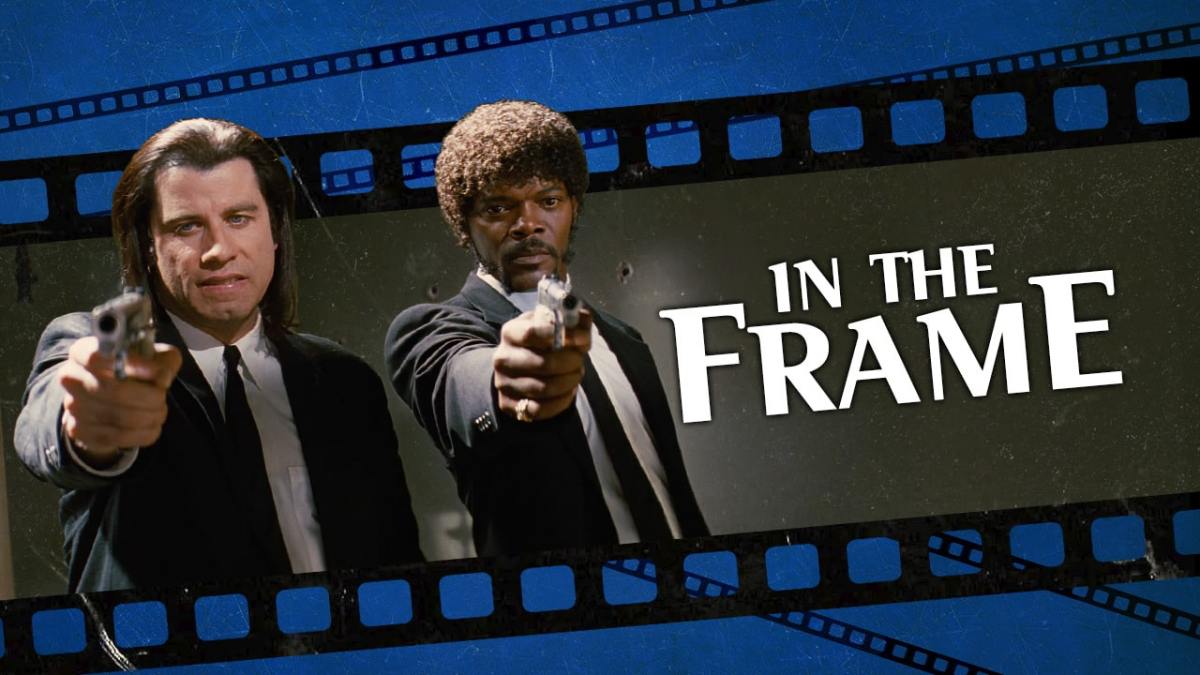




Published: Nov 27, 2020 11:00 am